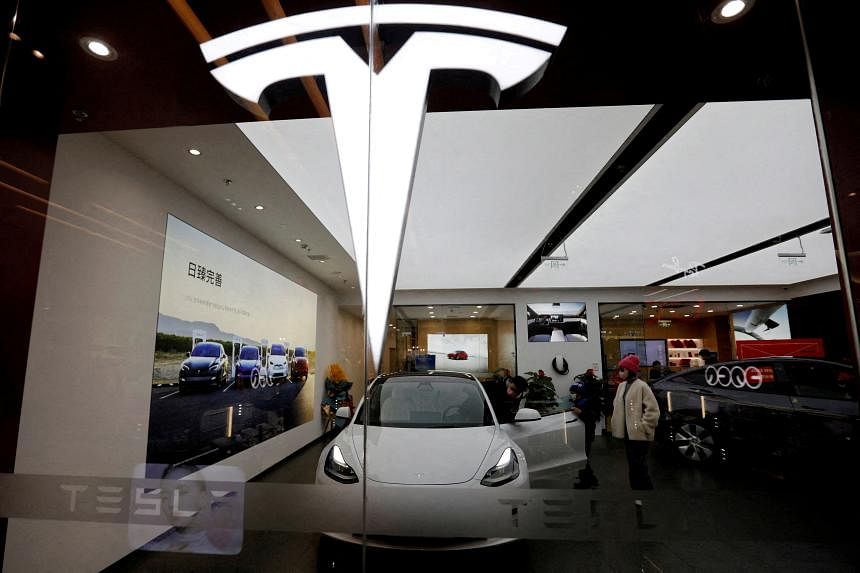SYDNEY – Tesla’s weekend move to slash prices across its range in China risks triggering a new round in the nation’s bruising price war, with Li Auto immediately responding with discounts and cash rebates on new models.
Li Auto on April 22 announced price cuts of about 6 per cent to 7 per cent across its line-up, with the L7 five-seat sport utility vehicle now starting from 301,800 yuan (S$58,000).
People who have already ordered but not taken delivery of their cars will be entitled to the new price, and Li Auto will offer cash rebates to existing owners of the 2024 models.
The automaker’s shares slumped as much as 6.9 per cent in Hong Kong trading.
Tesla lowered prices across the United States, China and Europe after disappointing first-quarter sales contributed to swelling inventory. In China, the price of the revamped Model 3 fell to 231,900 yuan from 245,900 yuan previously – back to its special launch price. The Model Y was discounted to 249,900 yuan, the cheapest it has been in at least five years.
China’s electric vehicle (EV) price war has been running since late 2022, when Tesla first cut prices. It intensified in 2023 as automakers struggled to meet sales targets, and has shown little sign of abating in 2024, with market leader BYD discounting some of its most popular cars, including the Seagull hatchback to less than US$10,000 (S$13,600).
On April 23, Tesla is expected to report a 40 per cent plunge in operating profit and its first revenue decline in four years when it releases first-quarter earnings. Chief executive officer Elon Musk has ordered the company’s biggest layoffs ever and staked its future on a next-generation, self-driving vehicle concept called the robotaxi.
In China, Tesla’s market share shrank to around 6.7 per cent in the fourth quarter of 2023, from 10.5 per cent in the first three months of the year, according to Bloomberg calculations based on China’s Passenger Car Association data.
The automaker recently pared back production schedules at its Shanghai factory, Bloomberg reported in March. Shipments from its Shanghai plant – which makes EVs for China and for export to other parts of Asia, Europe and Canada – declined in the first two months from a year earlier, even as overall passenger vehicle sales in China increased. BLOOMBERG

